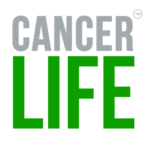The following is a transcription of this video post.
So what the question is, why is clinical validation so important to CancerLife and its strategy going forward? Well, I think, I think this is something fundamental and one of the things as I learned or realized, I would say back in early 2016, as I saw the digital health market sort of maturing, I realized clinical validation is going to be the difference between winners and losers in this space, meaning clinical validation we needed to run and show meaningful, measurable improvement in a IRB funded or IRB supported study in order for us to really make headway both from an perspective of investors, but also more, most importantly, from the perspective of cancer patients, the importance of clinical validation is cannot be, you know, kind of under stressed here because in order for get to get patients like you to even consider CancerLife, there’s gotta be a compelling reason.
You know, it’s not just like a new, you know, a consumer app that you’re willing to give a try to you’re, you’re overwhelmed. You may already be part of a Facebook support group. So you’re getting the emotional support that you need from other patients. Why should you, should you be using CancerLife? If you’ve got something else that you’re already using, or I’m just too tired or I don’t have the emotional energy to even try something new. And I totally understand that. And that’s why I realized in order for me, to convince new patients, to give, CancerLife a try, I needed to show them that there was a meaningful, measurable impact in their quality of life in order to convince them to give it a try. That’s why we spent the last three years in our clinical trial at John Wayne Cancer Institute.
It is a Phase 2 study observational in which we tracked nine 119 patients. We recruited them online and, and brought them into the system. And based on quality of life metrics called the fact G survey. We measured them in a 14 question survey metrics. And based on that study, we showed an average improvement of 25% in quality of life metrics and a reduction in symptom burden by 70% symptom burden, meaning the number of symptoms reported, um, each time dropped by an average of 70%. And we know that symptom burden has a direct impact on the quality of life. It’s this result of this study that we feel like it’s now time to launch the cancel life platform to the rest of the universe if you will. Um, secondly, when it comes to our randomized control trial, which is what would be called a phase three study, just like in pharmaceutical development R and D development, we are going to go through a randomized controlled trial of roughly a hundred patients at a vulnerable population in Trenton, New Jersey at capital health.
Um, so this is the highest level of clinical validation where you hope to start that, uh, January of 2021 and be done by June or July of, uh, 2021. And from that, we believe we’re going to replicate our findings and show at least a 20% improvement of quality of life and really make CancerLife a true digital therapeutic. It will be at this point where CancerLife essentially will achieve, uh, something that no one else has achieved, which is an app that has measurable a measurable app intervention, digital therapeutic that improves Quality of Life.
So that’s why in order to get all stakeholders in cancer care to recommend CancerLife, we felt like it was essential that we go through a fully validated clinical validation process and we’ve already achieved Phase 2 something that we can now share publicly and now it’s that we’re going to be moving towards a phase three randomized trial, which is exciting. We are on the precipice of something really magical. And for those of you who are considering CancerLife, please give us a try. Thank you.
